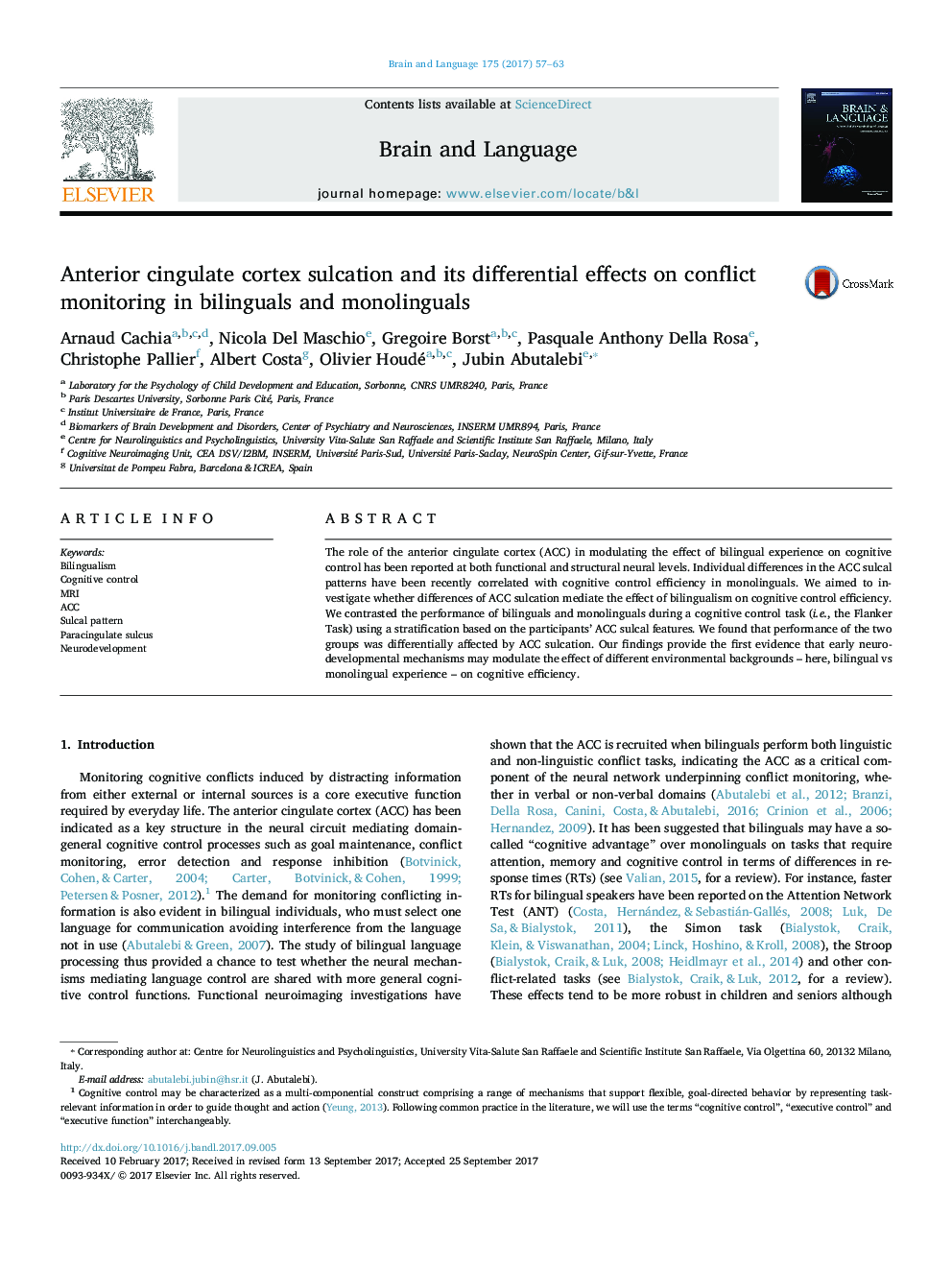| Article ID | Journal | Published Year | Pages | File Type |
|---|---|---|---|---|
| 5041225 | Brain and Language | 2017 | 7 Pages |
â¢Does ACC sulcal patterns mediate the effect of bilingualism on CC efficiency?â¢Bilingual and monolingual groups performed a Flanker Task.â¢Their performance was compared with ACC sulcal pattern as between-subject factor.â¢ACC sulcal patterns variability modulates CC efficiency for both groups.â¢However, a differential effect of ACC sulcal pattern across groups was detected.
The role of the anterior cingulate cortex (ACC) in modulating the effect of bilingual experience on cognitive control has been reported at both functional and structural neural levels. Individual differences in the ACC sulcal patterns have been recently correlated with cognitive control efficiency in monolinguals. We aimed to investigate whether differences of ACC sulcation mediate the effect of bilingualism on cognitive control efficiency. We contrasted the performance of bilinguals and monolinguals during a cognitive control task (i.e., the Flanker Task) using a stratification based on the participants' ACC sulcal features. We found that performance of the two groups was differentially affected by ACC sulcation. Our findings provide the first evidence that early neurodevelopmental mechanisms may modulate the effect of different environmental backgrounds - here, bilingual vs monolingual experience - on cognitive efficiency.
